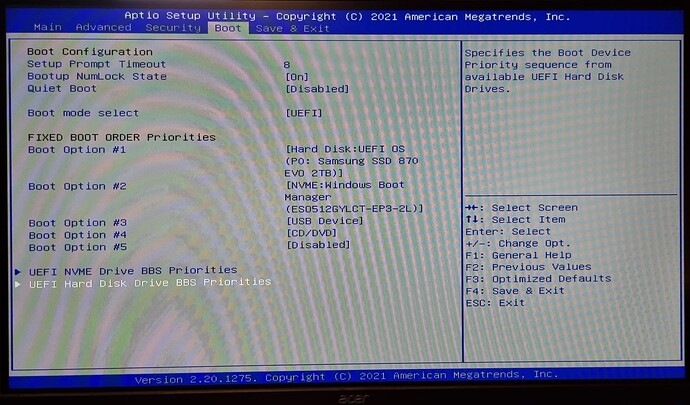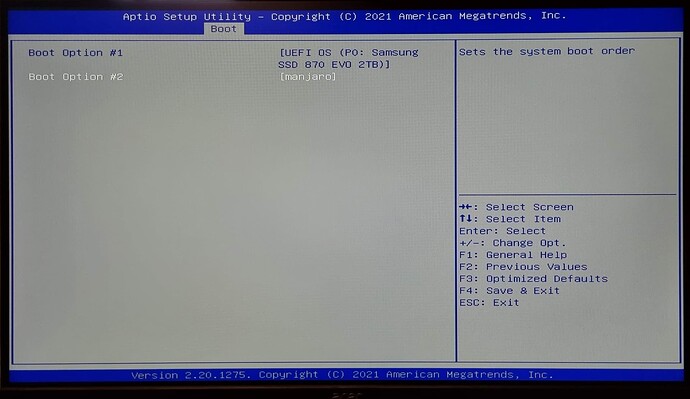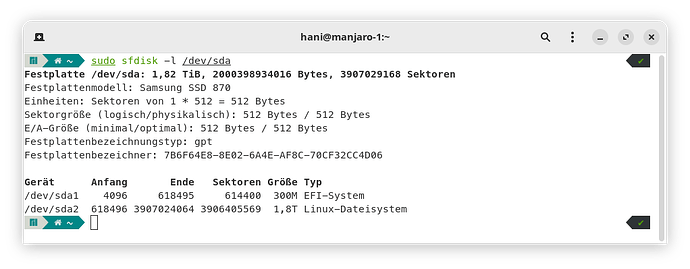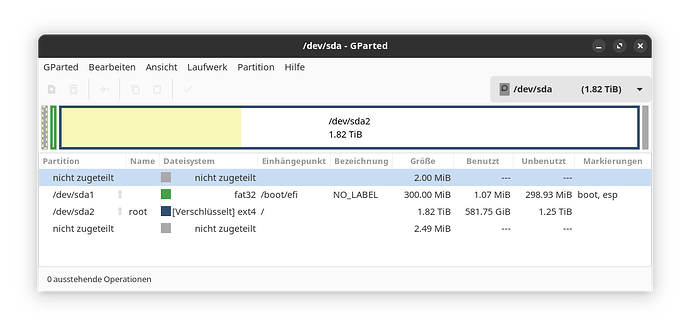@boustanihani well. You may want to post the content of your /etc/fstab file and compare it with the cryptomount llines of your /boot/grub/grub.cfg file. If you have dashes in the grub.cfg file for the UUID remove them in all the lines you find the word cryptomount and save the file. That is what the updated /usr/bin/update-grub does. You can re-read my more lengthy posts, as I explained the issue in rich details. Only updating the grub packages won’t update the grub install on you MBR/EFI. So you have to call grub-install ... at some point to fix it properly.
Thank you Philip, I was able to solve two of the errors.
Removing the dashes in /boot/grub/grub.cfg and calling grub-install fixed the “no such cryptodisk found…” error.
In “/etc/default/grub” I changed:
GRUB_SAVEDEFAULT=true
GRUB_DEFAULT=saved
To
GRUB_SAVEDEFAULT=false
GRUB_DEFAULT=0
This is how I fixed the “sparse file not allowed…” error.
Check: GRUB error: sparse file not allowed
Caution: Calling grub-mkconfig -o /boot/grub/grub.cfg regenerates the dashes in /boot/grub/grub.cfg
Now, I am only getting the “out of range pointer…” error , but after entering the password twice, the system boots correctly =>
452: out of range pointer: 0x95d6a020
Aborted. Press any key to exit.
Hello
nearly same thing ; since the “crypto bug” last day of march
I did several things but my computer was able to mount finaly (Sorry for my english language. Media items -screenshots- can’t be uploaded) :
Now at boot my PC prompts 2 times hd1, gpt2 UUID without dashes…
result :
sparse file not allowed…” error.
452: out of range pointer: 0x95d67020
Aborted. Press any key to exit
the third time, it prompts hd1,gpt2, UUID with dashes
and it’s OK
NB : no such a crypto disk message disappear with Philm command (sudo pacman etc Great Thanks to Philm !)
For information :
# /etc/fstab: static file system information.
#
# Use 'blkid' to print the universally unique identifier for a device; this may
# be used with UUID= as a more robust way to name devices that works even if
# disks are added and removed. See fstab(5).
#
# <file system> <mount point> <type> <options> <dump> <pass>
UUID=0118-AEE6 /boot/efi vfat umask=0077 0 2
/dev/mapper/luks-bab359ae-44e6-42f6-89ec-7d25913c7c37 / ext4 defaults,noatime 0 1
tmpfs /tmp tmpfs defaults,noatime,mode=1777 0 0
NB :
- I dare not to delete dashes from cfg (because I get impression system is mounting when it prompts UUID with dashes)
- I dare not make this change (I had seen before boustanihani post) because He still has to put 2 times the PW (me 3)
GRUB_SAVEDEFAULT=true
GRUB_DEFAULT=saved
To
GRUB_SAVEDEFAULT=false
GRUB_DEFAULT=0
Regards
A post was split to a new topic: Error no such cryptodisk found
Yes, that is why you should use /usr/bin/update-grub script which removes the dashes again. Anyhow, if you installed it to your MBR/EFI your new grub install supports also the value with dashes.
Thanks Philip, I did this, just wondering why all those errors happened at once…
Do you have an idea what could be causing the “452 out of range pointer…” error?
You forgot the option where you use and test FDE+sboot because it’s not the 1990s any more ![]()
But seeing that I can use a initramfs hook to accomplish FDE instead of grub there may be too many ways to skin that cat for testing…
I don’t know if this might help.
I have an older PC with an Intel i7-3770 CPU with the latest Manjaro using the LTS Kernel 6.1.49-1 an no bott problems.
I bought a modern Mini-PC with a Ryzen 7 4800U CPU and used Clonezilla to do (automatic) full disk cloning of my old SSD to a the new SSD.
When I try to boot the new PC, I get the "452: out of range pointer" error and I also need to enter my password twice…
I noticed I have two Boot Priorities in my Bios on my Manjaro SSD.
I switched to the other boot option, simply named “manjaro” (not UEFI).
This magically solved all issues, the “452: out of range pointer” error is gone, and I no longer need to enter the password twice.
Is it the non UEFI mode that solved the problem?
Below are some screenshots for my BIOS and my partition on the SSD.





